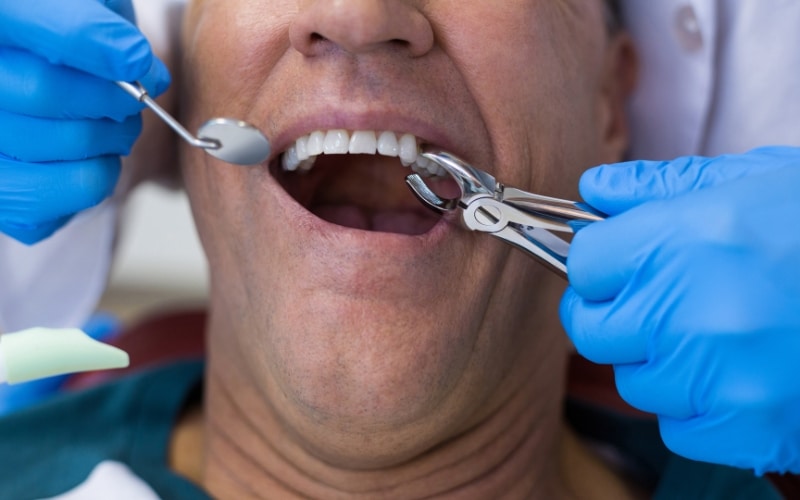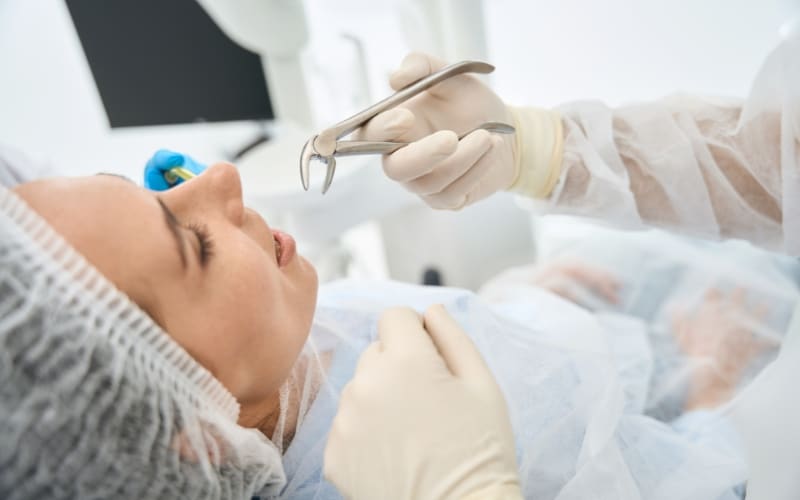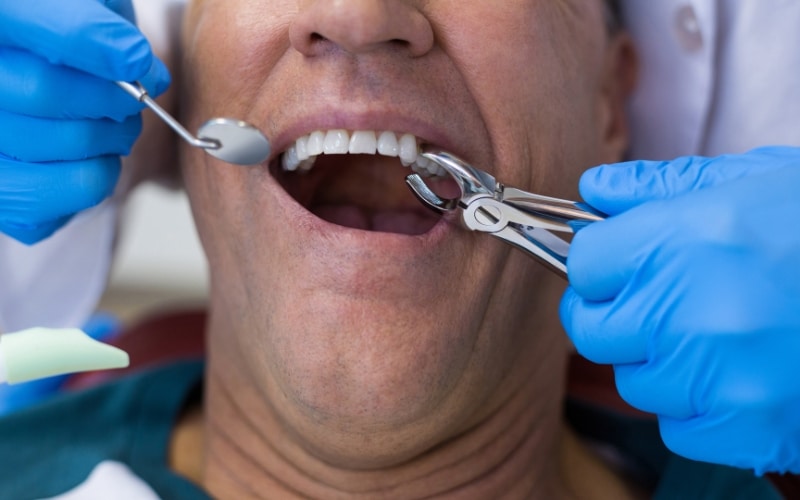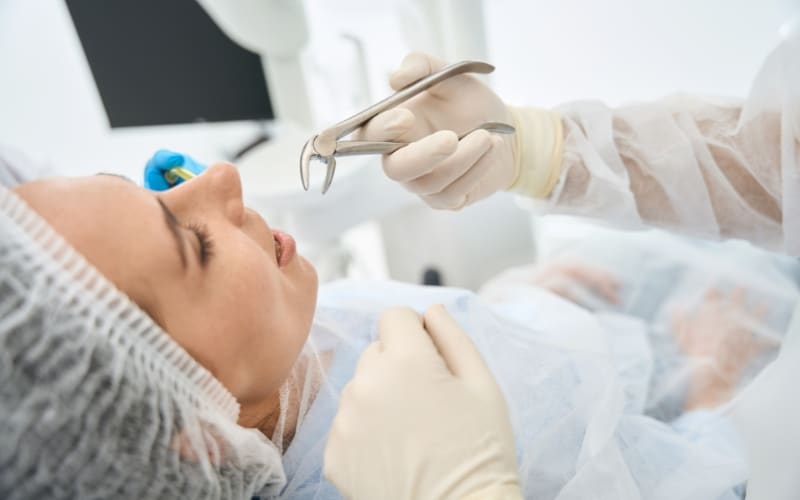New Patients Welcome!

Getting a tooth extracted is a significant dental procedure that requires careful aftercare. One common question among smokers is whether it’s okay to smoke after tooth extraction. The short answer is no, it’s not advisable. Smoking may hinder the healing process and cause problems like infections, delayed healing, and dry sockets.
In this blog, we’ll explore why smoking after a tooth extraction is risky, how it can affect your recovery, and what steps you can take to protect your oral health.
Why Smoking After Tooth Extraction is Harmful?
Smoking introduces harmful chemicals into your mouth, which can have serious consequences after a tooth extraction. Here’s why it’s dangerous:
Delayed Healing Process
- Restricted Blood Flow: Nicotine causes blood vessels to constrict, which reduces blood flow to the extraction site. This slows down the healing process and can lead to complications.
- Decreased Oxygen Levels: Smoking reduces the oxygen in your bloodstream, which is essential for tissue repair. Lower oxygen levels can result in slower recovery.
- Interference with Clot Formation: A blood clot forms at the site of an extraction to seal the wound and promote healing. Smoking can dislodge this clot, leading to a painful condition known as a dry socket.
Increased Risk of Infection
- Bacterial Growth: Smoking creates an environment in your mouth that can promote bacterial growth. This increases the likelihood of infection at the extraction site.
- Compromised Immune System: Smoking weakens your immune system, making it more difficult for your body to fight off infections. A compromised immune system can result in prolonged pain and discomfort.
Dry Socket: A Painful Complication
A dry socket is one of the most painful complications that can result from smoking after a tooth extraction. It occurs when the blood clot at the extraction site is dislodged, exposing the underlying bone and nerves. This condition can lead to intense pain and delay healing, often necessitating additional treatment from Dr. Beshoy Eskandar, a trusted dentist in Ventura.
How Long Should You Wait to Smoke After Tooth Extraction?
If you smoke, it’s important to know how long to wait after tooth extraction to minimize risks. Here are some guidelines:
The First 24-72 Hours are Crucial
- Avoid Smoking Completely: It’s critical to avoid smoking for at least the first 24-72 hours after your tooth extraction. This is the period when the blood clot forms and begins the healing process.
- Use a Nicotine Patch: If you find it difficult to go without nicotine, consider using a nicotine patch instead of smoking. This can help satisfy your cravings without introducing harmful smoke into your mouth.
Gradual Reintroduction
- Consult Your Dentist: Before you start smoking again, consult your dentist to determine the appropriate waiting period. They may recommend waiting longer based on your individual healing progress.
- Limit Smoking: When you do start smoking again, try to limit the number of cigarettes to reduce the risk of complications.
Essential Aftercare Tips for a Smooth Tooth Extraction Recovery
To guarantee a seamless and quick recovery after your tooth extraction, follow these tips:
Practice Good Oral Hygiene
- Gentle Brushing: Brush your teeth gently, avoiding the extraction site to prevent irritation. Use a soft-bristled toothbrush to clean the surrounding teeth.
- Rinse with Salt Water: After a full day, gargle with a warm saltwater solution to minimize the chance of infection and maintain the extraction site clean.
- Avoid Using Mouthwash: Alcohol-based mouthwashes can irritate the extraction site. Stick to saltwater rinses or a mouthwash recommended by your dentist.
Follow Post-Extraction Care Instructions
- Eat Soft Foods: Consume only soft meals, such as yogurt, mashed potatoes, and smoothies for the first few days. Foods that are firm or crunchy can irritate the extraction site.
- Stay Hydrated: Drink plenty of water to stay hydrated, but avoid using a straw, as the suction can dislodge the blood clot.
- Rest: Give your body time to recuperate by sleeping and avoiding physically demanding tasks for at least 24 hours after the extraction.
When to Contact a Dentist?
It’s important to keep an eye on your recovery process and be aware of any signs that might indicate a problem. If you notice any of the following symptoms, contact your regular dentist immediately.
Warning Signs to Watch For
- Severe Pain: Intense pain that doesn’t improve with over-the-counter pain medication may indicate a problem like a dry socket.
- Swelling or Redness: Persistent swelling, redness, or warmth around the extraction site could be a sign of infection.
- Foul Taste or Odor: A foul taste or odor in your mouth may indicate an infection at the extraction site.
Smoking after tooth extraction is strongly discouraged due to the risks it poses to your recovery. To safeguard your oral health, it’s crucial to avoid smoking for at least the first 72 hours after your extraction, maintain your oral hygiene routine, and follow all post-operative care instructions. Consult your dentist in Ventura before resuming any smoking habits. By taking these precautions, you can ensure a smoother recovery and maintain a healthy smile in the long run.





